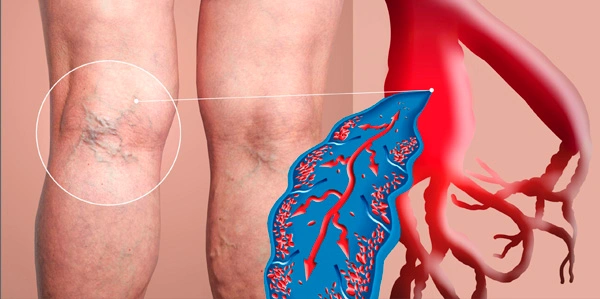Genetics and high blood pressure

If you tested your DNA with a personal genomics service like 23andMe, AncestryDNA, FamilyTreeDNA, MyHeritage or another testing company, you can learn more about your risk factors for hundreds of diseases. By clicking the button above ⬆️, you can upload your raw DNA data file and receive a personalized 250-page health report with research links that is the most comprehensive.
Abnormally high blood pressure in the arteries, which transport blood from the heart to the rest of the body, is known as hypertension. Blood pressure is the force exerted by the blood against the walls of the arteries as it is pumped by the heart to deliver oxygen and nutrients to the body. This pressure is measured in millimeters of mercury (mmHg), with the top number representing systolic blood pressure (pressure during heartbeats) and the bottom number representing diastolic blood pressure (pressure between heartbeats). A normal blood pressure reading for adults is around 120/80 mmHg, while a measurement of 130/80 mmHg or higher is considered high.
Essential hypertension has been linked to over 100 genetic variations, which are more prevalent in individuals with the condition than those without. However, none of these variations are major contributors to the development of essential hypertension.
The renin-angiotensin-aldosterone system is the focus of extensive genetic research on essential hypertension. This system regulates blood pressure and fluid and salt balance through a series of hormone-producing steps. As these genes are crucial for maintaining healthy blood pressure, scientists hypothesize that alterations in them could disrupt blood pressure regulation and lead to hypertension.
In various studies, ADRB1, NEDD4L, and YEATS4 genes have consistently been associated with responses to antihypertensive drugs. The ADRB1 gene produces the β-1 adrenergic receptor, which is targeted by β-blockers. Two common SNPs in the ADRB1 gene are Ser49Gly (rs1801252) and Arg389Gly (rs1801253). Patients who were homozygous for Arg389 and those with the Ser49Arg389/Ser49Arg389 diplotype experienced a greater reduction in blood pressure with metoprolol compared to those who carried the Gly allele or had the Gly49Arg389/Ser49Gly389 diplotype, respectively.
The protein produced by NEDD4L is responsible for decreasing the expression of ENaC in the distal nephron, which in turn regulates the reabsorption of sodium in the kidneys. Various studies have demonstrated that the G allele of rs4149601, which is situated within the NEDD4L gene and is more prevalent, is associated with a greater reduction in systolic and diastolic blood pressure when treated with thiazide diuretics. These results align with the function of NEDD4L in reducing the reabsorption of sodium in the tubules.
Variations in response to thiazide diuretics have been linked to single-nucleotide polymorphisms (rs317689/rs315135/rs7297610) located near the YEATS4 gene. This gene produces the GAS41 protein, which plays a role in controlling cellular growth. In African-Americans, the rs317689/rs315135/rs7297610 haplotype was identified as a significant factor in determining diastolic blood pressure response to hydrochlorothiazide (HCTZ) through GWAS analysis.
Follow the link of the selected polymorphism to read a brief description of how the selected polymorphism affects Hypertension and see a list of existing studies.
SNP polymorphisms related to the topic Hypertension:
| rs1126742 | The rs1126742 polymorphism of the cytochrome P450 gene is associated with essential hypertension in men. |
| rs4961 | The ADD1 gene variant is associated with the progression of blood pressure and the occurrence of hypertension. The risk of arterial hypertension is increased by 1.8 times. Increased sensitivity of blood pressure to salt, good response to salt-restricted diet. |
| rs3754777 | STK39 polymorphism is an independent risk factor for hypertension in men. |
| rs1801253 | Polymorphism of a conserved beta(1)-adrenergic receptor motif alters cardiac function and is associated with acute coronary syndrome and cardiovascular risk factors. |
| rs4963 | Phosphorylation-related variant ADD1 rs4963 affects blood pressure sensitivity to salt. |
| rs4149601 | Genetic variation in NEDD4L is associated with transverse and longitudinal blood pressure. Increases the risk of hypertension and adverse cardiovascular outcomes in patients with arterial hypertension treated with thiazide diuretics. Associated with favourable response to treatment with beta-blockers and diuretics in patients with arterial hypertension. |
| rs1799983 | Decreases the activity of the NOS3 gene and may reduce the efficiency of the methylation process. Also associated with increased risk markers for cardiovascular problems, such as total cholesterol and low-density lipoprotein (LDL) levels, and with an increased risk of high blood pressure, especially in pregnant women. |
| rs1529927 | A polymorphism with an increased risk of hypertension treatable with hydrochlorothiazide as first-line therapy, without a beta-blocker and without a vasodilator. |
| rs5186 | A polymorphism known as A1166C, one of the most studied genes, is associated with an increased risk of essential hypertension with an odds ratio of 7.3 (CC homozygote). |
| rs3865418 | A break in the NEDD4L gene is associated with significantly higher diastolic blood pressure. |
| rs675482 | |
| rs1805762 | |
| rs1937506 | |
| rs2030114 | |
| rs2266788 | |
| rs2288774 | |
| rs2304483 | |
| rs2398162 | |
| rs2820037 | |
| rs2846680 | |
| rs2954033 | |
| rs3755351 | |
| rs3781719 | |
| rs3794260 | |
| rs4684847 | |
| rs6749447 | |
| rs6997709 | |
| rs7961152 | |
| rs9739493 | |
| rs10930597 | |
| rs11823543 | |
| rs11825181 | |
| rs11887188 | |
| rs16890334 | |
About The Author
Li DaliLi Dali, a National Foundation for Outstanding Youth Fund recipient, is a researcher at the School of Life Sciences in East China Normal University. He earned his PhD in genetics from Hunan Normal University in 2007 and conducted collaborative research at Texas A&M University during his doctoral studies. Li Dali and his team have optimized and innovated gene editing technology, leading to the establishment of a world-class system for constructing gene editing disease models.


